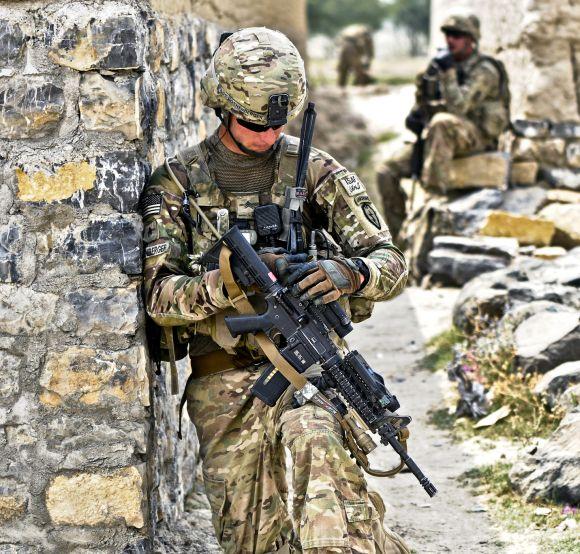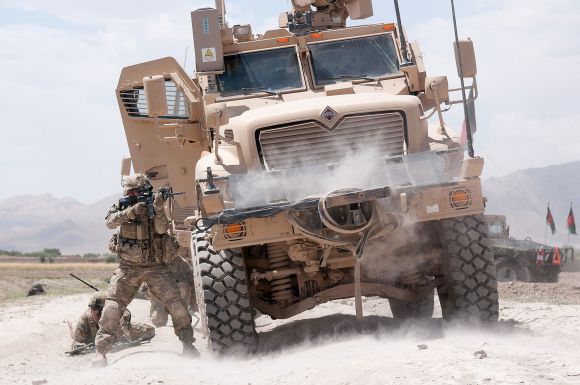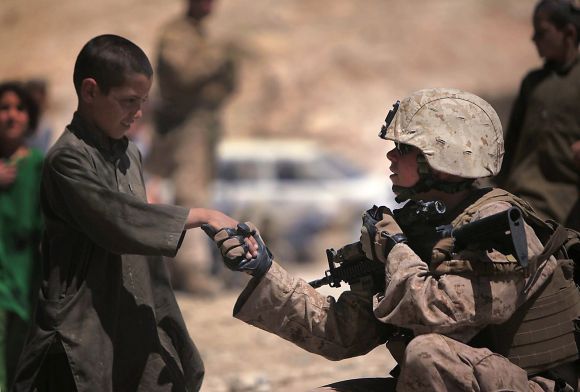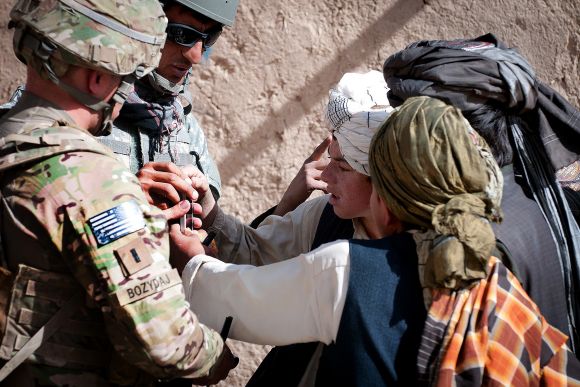 | « Back to article | Print this article |
'The US has no clear answer for the future of Afghanistan'
At a conference on the future of Afghanistan, tough-talking former Indian diplomat Kanwal Sibal tears into Washington’s policies and Pakistan’s betrayal of trust. Aziz Haniffa reports
“We find the policies of our Western friends in Afghanistan neither sufficiently steady nor transparent,” Kanwal Sibal, India’s tough-talking former foreign secretary, declared at a conference on Afghanistan.
Sibal, who is not known to pull his punches, particularly when it comes to pillorying Washington for what he calls pandering to Pakistan, complained: “India has not been kept adequately in the picture about the dialogue with the Taliban, despite India’s vital concerns being involved.”
“India suffered when the Taliban came to power in 1996. That was the only time India had no diplomatic relations with Afghanistan and terrorists were being trained on its soil for attacks against India. If the Taliban were to be accommodated again, India has reason to be concerned.”
Click NEXT to read further...
'We have legitimate interests in Afghanistan as a neighbouring country'
Speaking at the conference attended by senior administration officials, lawmakers and their aides, and leading policy wonks from Washington, DC, think tanks, Sibal also tore into Washington’s policy in Afghanistan.
“President (Hamid) Karzai was parachuted to the presidency without elections in post-war circumstances in which the US and the West could impose their will,” he declared.
“But the US and the West have not been able to manage Karzai, despite having many levers at their command,” Sibal said,
Whether the Obama administration’s threats of “a zero option” is “pressure tactics or is a veritable option” is not clear, he said, but it showed that ‘the US has no clear answer for the future.’
Sibal, who served as deputy chief of mission at the Indian embassy in Washington, DC, said, “India has to cope with the situation as it develops… We know, of course, what the dangers are ahead and have tried to play our role in preventing untoward conditions from developing through our political and economic engagement with Afghanistan.”
India, he said, “is pursuing a very responsible policy in Afghanistan. We want a sovereign, stable, democratic and prosperous Afghanistan, one that is free from extremism and where human rights, especially those of women, are respected.”
“India is doing nothing contrary to the achievement of this objective in Afghanistan. We are not interfering in Afghanistan’s internal affairs, arming any particular group or providing safe havens for terrorists or anti-government political groups to carry on violent activities against the legitimate government of Afghanistan.”
“We have legitimate interests in Afghanistan as a neighbouring country and every right to be present there,” he said.
Click NEXT to read further...
'Endgame in Afghanistan being played out in an atmosphere of suspicion'
“The international community cannot accept the curtailment of Afghan sovereignty by endorsing the principle that the Afghan government should give precedence to the interests of any particular country over that of any other,” Sibal said.
“It is for the Afghan government to take independent decisions in a responsible way. India has no intention to occupy the legitimate space that other neighbouring countries of Afghanistan seek there,” he added.
Thus, he said, India has every reason to be concerned by “the outreach by the US, Britain and others to the Taliban. We are not against any genuine attempt at reconciliation if all sides want it on a basis that respects the red lines drawn by the international community for a dialogue with the Taliban.”
“(But) we find that these red lines are being blurred by North Atlantic Treaty Organisation’s anxiety to withdraw from Afghanistan by 2014 whatever the ground situation. Such a strategy gives the upper hand to the Taliban groups in Pakistan in negotiations as they know time is on their side.”
The endgame in Afghanistan, he said, “is being played out in an atmosphere of great suspicion and bickering amongst the principal parties involved.”
“The link between the Taliban and Pakistan is evident. One will have to wait and watch whether the declared US position that no single country will be allowed to dominate post-2014 Afghanistan can be sustained by it when its intention to withdraw from Afghanistan is so clear,” Sibal said.
“So long as there are safe havens for extremists outside Afghanistan the problems will not go away. If the Taliban retain influence in eastern and southern Afghanistan, it is because their staging grounds are outside,” warned Sibal.
Click NEXT to read further...
'India's goal in Afghanistan economically-oriented and not military-oriented'
Sibal also slammed what he described as “a hugely perverse notion that the real problem in Afghanistan is India-Pakistan rivalry.”
In a point by point rebuttal of a contention which has been doing the rounds in Washington, particularly among some senior Pentagon officials and intelligence analysts, Sibal asserted, “India was not responsible for the rise of religious extremism in the region. It was not responsible for the civil war in Afghanistan after the Soviet departure. It did not put the Taliban in power in Kabul. It had no hand in the presence of Al Qaeda and Osama bin Laden in Afghanistan. It had no responsibility for US/NATO military intervention in Afghanistan. The Taliban groups or the Haqqani group are not in India.
NATO soldiers have not been killed by groups operating from Indian soil. If the US has had to resort to drone attacks against terrorists in Pakistan, it is not because of India.”
India, he said, seeks “no exclusive relationship with Afghanistan. Afghanistan should have friendly relations with all its neighbours. We are willing to work with all of them. India and China are already talking to each other on Afghanistan. There should be no problem in discussing Afghanistan with Pakistan in a constructive way that opens up the doors for transit facilities eventually.”
He called on the new (Pakistan Prime Minister) Nawaz Sharif government to “think along those lines, rather than allowing Pakistan’s policies to be guided by the ambitions of its armed forces.”
In the question-answer session that followed, Sibal took on the critics who faulted India’s training Afghanistan’s armed forces and its police.
“We (India) are not ourselves interested in expanding our military role,” he said, pointing out that it was the Afghans who “want our military training. Our primary goal in Afghanistan is economically-oriented and not military-oriented.”
“We should not pander to these demands by Pakistan that they have some oversight on decisions by third countries.’
Sibal alleged that Pakistan was providing huge shipments of arms to Sri Lanka to suppress the aspirations of the minority Tamil population.
Islamabad, he added, was continuing its efforts to destabilise India and was using its massive embassy in Nepal as a conduit to ship huge supplies of arms for use against India by terrorist and secessionist groups.
TOP photo features of the week
Click on MORE to see another set of PHOTO features...




